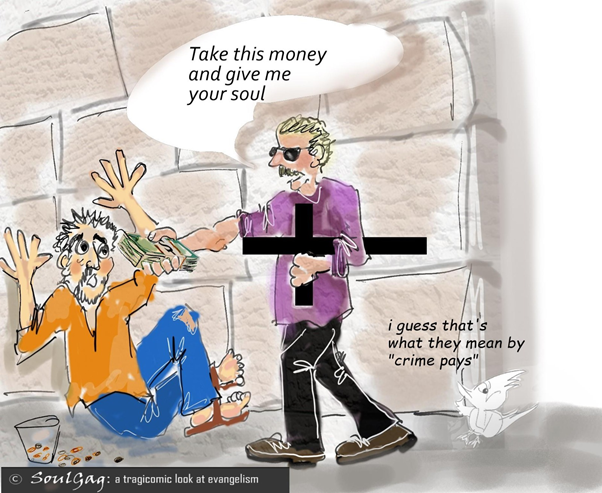Following the recent “outing” of covert missionaries in Israel, who had been living for years in the Jerusalem area as ḥaredi Jews, reactions ranged from individual and communal anger, resentment, confusion, accusations and denial – and by some definitions, trauma. Friendships were stretched and broken and there was a sense of shame and betrayal, with many wishing to keep things quiet “for the sake of the community.”
This is seemingly the “tip of the iceberg” with other long-embedded clandestine messianic missionaries, and their evangelical sponsors, being discovered throughout the country. The hope is that the thorough research and evidence being presented, by various counter-missionary organizations and investigative journalists will pressure and motivate Israeli government ministries and quasi-government agencies to take action and fulfill their responsibilities to enforce and enact counter-missionary measures.
The denial and negation of the problem, expressed in reactions on social and mainstream media, and via informal social conversations, largely centered on several questions:
“Who did they really harm anyway?”
“Did they actually convert anybody?”
“Doesn’t Israel have bigger problems to worry about?”
This is all a thinly veiled defense by those who fear any criticism of Israel’s partnership with American evangelical Christians could possibly jeopardize the political, financial, and “moral” support that comes with that relationship.
There has been a lot of frantic finger-pointing and blaming:
“The people who outed them are anti-Christian.”
“What a display of callousness towards the children and disrespect for the deceased mother.”
“Who are we to say who is really Jewish?”
“Why didn’t you tell us about them when you first found out?”
“Your Jewish identity is insecure if you let this bother you”
“You are going to harm our relations with the few friends we have left in the world”
(These are but a few of the typical reactions)
A response of studied quietude came from Israeli leaders, while members of the communities infiltrated by the missionaries were outraged and resembled “chickens with their heads cut off” as they scrambled to find leadership and direction. And therein lies the problem…
There is no consultative body with which to address the public’s concerns. No ministerial governmental guidance. No support for communities. No guidelines. No plans for intervention. No political will to discuss the problems, initiate change or to come up with regulatory guidelines and legal clarity. But there is a lot of defensiveness and counter-blaming emanating from those institutions which should be dealing with the problems at hand, because… nobody wants to touch and reign-in the untouchable “faith-based” alliance.
A relationship built on the intangible, irreconcilable and impossible foundation of conflicting ethics and theologies allows for no honest examination and debate, no practical frame of reference and no reciprocal understanding and respect.
This ”faith-based” relationship is much like a marriage gone awry, characterized by a forced and false intimacy, where a domineering partner insists, “I know what you need.”
Relationships often go wrong because there haven’t been agreed upon ground rules. We are attempting to jury-rig two different worldviews together, each with vastly different theologies, languages, terminologies, expectations for the future, sense of entitlements, histories and reasons for being.
A “no strings attached” relationship that is enmeshed in copious quantities of economic, political and philanthropic benefits requires a no-nonsense moral, ethical and legal written foundation. “Faith-based diplomacy” is too abstract, and too open to interpretation. “Faith-based” leaves the door open to projecting one set of beliefs onto another, to not agreeing upon common language and concepts. For example, the phrase “Judeo-Christian values” is frequently bandied about in pro-Israel interfaith forums, but whereas naive Jews perceive the catch phrase in the context of Western civilization and values, evangelicals infuse the concept with an added spiritual dimension that amounts to a theological fusing of both faiths.
As one very popular evangelical leader said, “Judeo-Christian values have no meaning apart from Scripture… the proclamation of the Good News [the gospel of Jesus] is the ultimate Judeo-Christian value.”
It’s time we change the narrative and put the relationship on a moral and ethical footing. Evangelical missionaries engage in what they perceive as biblically sanctioned ploys to win souls. From my perspective, I see many of these maneuvers as orchestrated and calculated deceptions akin to criminal-like behaviors.
Missionaries have infiltrated the most intimate place of a Jewish person’s life, and, in our case, the Jewish nation’s life: our home, our soul, our peoplehood and our relationship with our Creator. What defines our essence is an intimate and private concern, and yet we have given over the keys to our home and entered into an ever-evolving pathologically manipulative relationship with those who claim rights to our inner sanctum.
The evangelical missionaries are part of well-financed, organized networks of, dare I say… “criminals” – with an unethical psychological and anti-social mentality. These missionaries have more in common with Al Capone than with theological advocates. Narcissistic sociopathy is not a religious event, not an expression of “sharing” religious comfort, but rather, an imposition of one’s will upon another without regard to the impact on them or their family or community.
Foreign nations use cyber technology to infiltrate and damage Israeli defense and infrastructure. On some level, can this not be compared to foreign evangelical organizations funding stealth missionary operations with the objective of impacting and influencing Israeli people and society as a whole? Thus, someone who enters the country under false pretense, funded by an American or other foreign missionary entity that promotes a hidden agenda… is stepping on illicit ground.
Deception is a lie. Fraud is a crime. Fraud is defined as intentional deception to secure unfair or unlawful gain monetarily or other benefits by way of false statements and false actions.
Let’s deal with it and take it out of the lofty and complex realms of “religion,” “theology,” “ideology,” “messiah,” “points of view,” “freedom of religion,” “marketplace of ideas,” even “anti-Semitism” and other grand and broad debates and concepts.
It is time for a “constitution” – a relationship contract with obligations and consequences between Israel and evangelizing Christians, to include:
- If one makes a false and unverifiable claim as a Jew under the Law of Return, that person should not be able to enter the country. If he or she does enter the country, it should be considered a criminal offense.
- Entering the country due to political or financial influence, or “protexia” with missionary intent, is unethical and immoral, and should not be allowed. If discovered, it should be deemed criminal behavior for the person entering and the person performing the manipulation of or from within the system.
- If one has a proven history of missionary activity, or intentions to missionize, that person should not be able to enter Israel. If so, it should be regarded as a criminal action.
- If one has been advised by missionary entities or advocates on how to circumvent the questions on the entrance application or falsify documentation to Israel, it should be understood as illegal.
- If one presents false information or misrepresents themselves in order to enter and stay in Israel, this should be punishable by the law.
- If a Jew has converted and become a Christian (and let’s be clear: “Messianic Jews” are Christians), and enters under the Law of Return, that is misrepresentation and should be punishable.
- If one has falsified a family name or genealogical records to enter Israel under the Law of Return, that is deception and falsification.
*[Note: The above list should be seen from an ethical and moral perspective, with the hopes that one day it will be properly legislated.]
If you are a concerned and proactive citizen, contact authorities (numbers below). Insist on prosecutorial action. Appeal for an investigation into intentional or unintentional administrative negligence. Advocate for legislative change.
Each society and culture defines what is a “crime” based on its values and ethics. We Jews are the proud progenies of a long and distinguished tradition of boldly facing daunting moral and legal dilemmas, and formulating redemptive and livable solutions.
Israel has much work to do in facing the age-old challenge from Christian missionaries, but we need to recognize fraud for what it is and to insist on transparency in our relationships that is in alignment with everything we stand for and strive to be as a people and as a society.
Contact Numbers:
- The Knesset-02-675-3333
- Nefesh B’Nefesh-Israel: 02-659-5800; USA & Canada-1-866-425-4924
- Israeli Ministry of the Interior (Misrad Hapnim)- Israel: 02-629-4666
- Israeli Population and Immigration Authority-Israel: 074-708-3450; Abroad: +972-72-708-3450
- Chief Rabbinate of Israel-02-531-3131
- Call Center for Reporting Fraud (National Insurance Institute of Israel)-Israel-02-370-9955






A professor of mine uses to say of Jews and Christians that they are “two different peoples with different assumptions and different concerns talking to different peoples about different issues.” It is not that we are like two ships passing in the night, it is that our two ships are floating on different oceans. Speaking of Judaism and of Christianity is not speaking ethically, theologically, or historically like comparing apples to oranges, it’s like comparing apples to trucks!